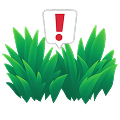Be A Tool
Apr 25, 2025 | Version 1You’re probably not used to being called a tool, but maybe you should be.
Two words sparked this belief in me years ago: “Be useful.” Those words changed my outlook, guiding how I approach work, relationships, and life itself.
But why “be a tool”?
A tool is something built for a clear purpose—to do something useful.
It’s the ultimate embodiment of my favorite phrase.
Throughout history, our mastery and improvement of tools have driven humanity forward.
Take the laptop I’m writing this essay on. By itself, it’s useful. With internet access, it becomes vastly more valuable, connecting me to nearly all human knowledge. Add artificial intelligence, and its usefulness skyrockets, helping me generate ideas and refine thoughts instantly.
But tools have limits.
They wear out, break down, and need replacing. People aren’t so different—we also have lifespans, but unlike physical tools, we can adapt, evolve, and become increasingly useful over time.
Consider early humans, aptly called Homo habilis—the “handy man.”
Our ancestors distinguished themselves by crafting and continuously improving tools. Many animals use objects, but humans uniquely build upon knowledge, creating technology that evolves endlessly.
Anthropologists like Kenneth Oakley describe humans as Homo faber—”man the maker.” We don’t just use tools; we constantly refine them, a cycle that pushes society forward.
I prefer the term “tool” over “technology” because it’s simpler, clearer.
A tool can be straightforward or complex, single-use or lifelong, easily replaced or endlessly adapted. Its purpose is always clear: usefulness.
Aspiring to “be a tool” means embracing usefulness as a core value. It means adapting, staying practical, and continually evolving to meet life’s demands.
Our identity as creators, builders, and innovators is deeply embedded in culture. Even foundational narratives like the Bible highlight humanity’s inherent creativity. Setting aside religious interpretations, humanity is depicted in the image of a creator who builds the world in six days. This narrative underscores a deeply ingrained cultural identity: humans as creators, builders, & toolmakers.
Ultimately, “be a tool” is more than a mantra—it’s a call to action. It’s about recognizing our potential to be endlessly useful, adaptable, and impactful.
Our greatest strength is our ability to create, adapt, and above all, remain useful.
So go on, be a tool.

